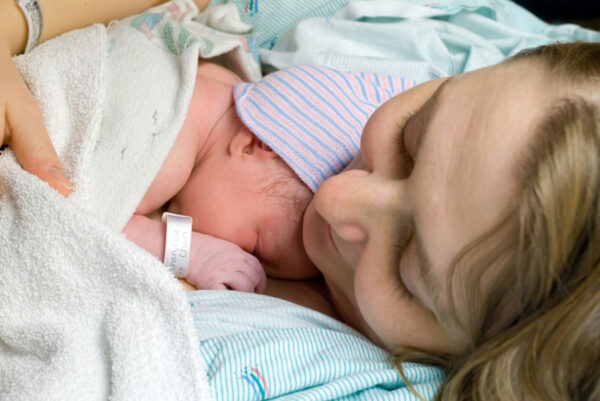Postpartum Depression – Breaking the Silence and Stigma

Giving birth is a life-changing experience. You feel overwhelmed with excitement, joy, and fear. However, at times, you may also experience extreme emotions of sadness, anxiety, tiredness, and crying spells, known as postpartum depression (PPD).
Many times, PPD gets confused and interchanged with baby blues. Most mothers experience baby blues after childbirth, which includes mood swings, anxiety, sadness, irritability, and appetite and sleep troubles. It usually begins after 2-3 days of delivery and continues for about two weeks. Contrarily, postpartum depression may start during pregnancy or the first few weeks after birth and last for about a year or so. postpartum depression signs and symptoms occur at greater severity compared to those of baby blues. At the same time, remember that PPD may affect not only the mother but the father and surrogate or adoptive parents as well.
Signs And Symptoms of PPD
People suffering from PPD may experience severe mood swings, loss of appetite, interest, and energy, insomnia, intense irritability and anger, hopelessness, and feelings of guilt and shame. They may feel restless, worthless, and inadequate. They may have difficulty bonding with the baby and feel like a bad parent. Even thoughts of suicide or harming oneself and the baby may often invade their minds.
Factors Influencing the Occurrence of PPD
A person with a history of depression in the family or struggling with the disorder before pregnancy is at a high risk of experiencing PPD. Limited social or family support, conflicted relationship with the partner, and domestic violence greatly influence the occurrence of PPD in a new parent. Even health or pregnancy complications, premature birth, birth loss or defects, and unplanned or young pregnancy increase the risk of PPD.
How it Affects the Baby
The effect of PPD is not limited to the parent suffering from it but can also affect the growth and development of your child. You may fail to establish a strong connection with your baby and consequentially might not be able to recognize their needs or when they are sick. Your baby may even have learning and behavioral problems, impaired social skills, and breastfeeding and sleeping issues. It may also expose your child to an increased risk of developing obesity.
Treatment
If you suspect symptoms of postpartum depression in yourself, approach your healthcare provider right away. They may suggest the best treatment option for you. PPD treatments include cognitive behavioral therapy (CBT), interpersonal therapy (IPT), support groups, and medicines. However, remember not to undergo any treatment or consume any medicine unless your doctor suggests it.
Postpartum depression might not be a pleasant experience, but with the right care, support, and treatment, you can effectively fight the condition and become a healthy and happy parent.
–Sangita Goel works as a Content Writer for a wellness and style blog and loves to spend her leisure time reading and catching up on web series.







